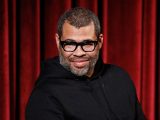We Talked to Stand-Up Comic Dave Merheje About Arab Representation on TV
March 22, 2019This article originally appeared on VICE Canada.
Last week, a right-wing extremist gunned down 50 Muslims at two different mosques in Christchurch, New Zealand. In his 74-page manifesto, the attacker said he was inspired by President Donald Trump who once said “Islam hates us,” French anti-immigration writer Renaud Camus, and Candace Owens, a right-wing social media pundit who predicts that Europe will soon become a Muslim majority continent with Sharia law.
Add this political rhetoric to the depiction of Arabs and Muslims in popular culture.
For decades, movies and TV shows have portrayed Arabs as villains, terrorists, misogynists, barbaric, or just plain incompetent. Arabs are not a monolith but are routinely painted as such. Jack G. Shaheen, an Arab American scholar, found that Hollywood projects “all Arabs as Muslims and all Muslims as Arabs” even though just 12 percent of the world’s Muslims are Arab and about seven percent of the Arab population is either Christian or Druze.
From 1943 to 2012, Shaheen archived nearly 3,000 moving picture records including movies, cartoons, news clips and television and found a pattern of “hateful Arab stereotypes that rob an entire people of their humanity.“
Consider the original lyrics from the 1992 Disney classic Aladdin: “where they cut off your ear if they don’t like your face, its barbaric, but hey, it’s home.” Or the 2000 war film Rules of Engagement in which Yemen is portrayed as a radical anti-American country where even the children are “gun-toting killers.” On small screens, shows like Homeland and 24 are full of Muslim character that are either “duplicitous spies or bloodthirsty terrorists.”
These depictions have real-life ramifications ranging from the perpetuation of harmful stereotypes to unfavorable policy positions, and even violent hate crimes. One way to combat the narrative is for Arab entertainers to tell their own stories.
Stand-up comedian, Dave Merheje, is doing just that with his comedy and acting roles. Merheje, born and raised in Canada, is the son of Lebanese Christian parents. He recently won the Juno Award for Comedy Album of the Year for his comedy album Good Friend Bad Grammar. His latest role is on Hulu’s new show Ramy, which follows a first-generation Egyptian American who works at a failing tech startup in New Jersey as he navigates his complicated Arab, Muslim, and American identity.
Merheje plays “Ahmed,” one of the main character’s best friends. Seldom, if ever, do we see funny, nuanced young Arab men on American television, let alone see them as subjects of a coming-of-age story.
While Merheje ‘s primary goal is to make sure people have a good time, he also hopes to tell stories that matter and “create something that moves things forward.” Much of his comedy is inspired by his own life with bits about how his mother still babies him, how his dad was called a “camel jockey” at work, and his awkward sexual moments with women.
I recently spoke to Merheje over the phone about his comedy, upcoming Hulu show, and why representation matters.
VICE: You just won the Juno Award for Comedy Album of the Year. What does that mean to you?
Dave Merheje: It feels great, especially for all the people who worked on the album with me. That award wasn’t even around; they stopped giving it out in 1982 and recently brought it back. As a Canadian Lebanese guy, I am just trying to share my experience. My dad was in the audience so it was really special.
How did you get into comedy?
As a kid, I remember playing with my sister Mary and my cousin Danny, we would make tapes, record imitations or jokes, we would try to do scenes from TV shows and play them back to each other. I would diss my aunt in front of my mom, I didn’t even know it was a diss but I thought it was a joke and I realized I would get a laugh. My uncle Brian introduced me to comedians like Andrew Dice Clay, Eddie Murphy, Richard Pryor, and I was like ‘what is this thing?’ And around 14 years old, I told my best friend at the time that I wanted to be a stand-up and, at 19, I did an amateur competition. I lost.
Where does most of your stand up material come from?
My life. I try to talk about my family and it’s actually like everyone else’s family. We have these issues like everyone else. I talk about my upbringing and my experiences.
Do you think about representation when you write material or perform an act?
If I think something will harm my culture, then I don’t want to do it. I want to do things that are comfortable for me but also things that I think are dope. I have gotten into arguments with my managers and agents about roles I don’t want to take. If I can shed some positivity on my culture then I will do that. There are certain roles I won’t even audition for. And I am not knocking anyone else who decides to take those roles, but I’m personally not comfortable with them.
Have you been the victim of any stereotypes?
I have a beard so people think I am Muslim. People don’t even know there are Lebanese Christians. So I’ve had people heckle me and say racist things about Muslims at shows and then I educate them, sometimes on stage and sometimes off stage. I remember this kid going to school in Windsor, he turned around to me and said, “tell your dad to stop bombing my country.” I think he was referring to Saddam Hussein. As you get older, you understand better how respond and say positive things to those people. When you’re young, you’re scared and don’t know how to handle it. Back then, I would be hurt and more vulnerable, now I can say “nah man, that’s not right” and inform them that racism is wrong no matter who it’s directed to.
Can you tell us about the role of Ahmed on Ramy ?
I play one of Ramy’s Muslim friends who is there for Ramy in different ways at different points in the show.
Why did you agree to being on the show?
It’s a funny, smart, dope project that I love being a part of. I respect everyone behind the show. I think it’s a unique story that will shed some light on a culture that typically gets a lot of negative treatment. I am really excited and proud to be part of the positive experience the show highlights.
In your opinion, why do you think a mainstream outlet picked up Ramy?
I can’t say for sure, but I am guessing it’s because it’s just a really good story—a unique, interesting, and positive story. I think when you tell a story in an honest way, it resonates with people.
What’s the goal of comedy for you?
I think Richard Pryor said something along the lines that he wants to be remembered as a good person and a good time. I am probably misquoting him, but I just want people to remember that I was being myself and telling my truth. They may not know me off stage but I want people to feel that I am being authentic. If my work happens to be informative and smart, that’s a bonus.
Sign up for our newsletter to get the best of VICE delivered to your inbox daily.
Follow Samar Warsi on Twitter.


